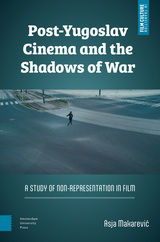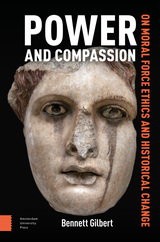3 books about Bodleian Library, The Bodleian Library
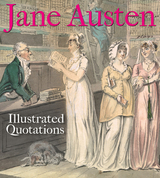
Jane Austen
Illustrated Quotations
Edited by the Bodleian Library
Bodleian Library Publishing, 2017
“Next week I shall begin my operations on my hat, on which you know my principal hopes of happiness depend.”—from a letter to Cassandra, October 27, 1798
“You express so little anxiety about my being murdered under Ash Park Copse by Mrs. Hulbert’s servant, that I have a great mind not to tell you whether I was or not.”—from a letter to Cassandra, January 8, 1799
“Single women have a dreadful propensity for being poor, which is one very strong argument in favour of matrimony.”—from a letter to Fanny Knight, March 13, 1817
Much loved for the romantic plot lines and wryly amusing social commentary that spring from the pages of Pride and Prejudice, Mansfield Park, Emma, and her other novels Jane Austen was also a prolific letter writer and penned missives on many subjects. To her sister Cassandra she wrote with candid humor about the effects of the Peninsular War (“How horrible it is to have so many people killed! And what a blessing that one cares for none of them!”), about her dislike of parties and social obligations (“We are to have a tiny party here tonight. I hate tiny parties, they force one into constant exertion.”), and about her impressions of London (“Here I am once more in this scene of dissipation and vice, and I begin to find already my morals corrupted.”). Austen’s characters likewise offer commentary on topics like moral character, gender inequality, ageing, and the disappointments of marriage. In Pride and Prejudice, for example, Charlotte Lucas cautions Elizabeth Bennet, “It is better to know as little as possible of the defects of the person with whom you are about to pass your life.”
Drawing together fifty quotations from Jane Austen’s letters and novels with illustrations that illuminate everyday aspects of life in the Georgian era, this beautifully produced volume will make the perfect gift for Janeites.
“You express so little anxiety about my being murdered under Ash Park Copse by Mrs. Hulbert’s servant, that I have a great mind not to tell you whether I was or not.”—from a letter to Cassandra, January 8, 1799
“Single women have a dreadful propensity for being poor, which is one very strong argument in favour of matrimony.”—from a letter to Fanny Knight, March 13, 1817
Much loved for the romantic plot lines and wryly amusing social commentary that spring from the pages of Pride and Prejudice, Mansfield Park, Emma, and her other novels Jane Austen was also a prolific letter writer and penned missives on many subjects. To her sister Cassandra she wrote with candid humor about the effects of the Peninsular War (“How horrible it is to have so many people killed! And what a blessing that one cares for none of them!”), about her dislike of parties and social obligations (“We are to have a tiny party here tonight. I hate tiny parties, they force one into constant exertion.”), and about her impressions of London (“Here I am once more in this scene of dissipation and vice, and I begin to find already my morals corrupted.”). Austen’s characters likewise offer commentary on topics like moral character, gender inequality, ageing, and the disappointments of marriage. In Pride and Prejudice, for example, Charlotte Lucas cautions Elizabeth Bennet, “It is better to know as little as possible of the defects of the person with whom you are about to pass your life.”
Drawing together fifty quotations from Jane Austen’s letters and novels with illustrations that illuminate everyday aspects of life in the Georgian era, this beautifully produced volume will make the perfect gift for Janeites.
[more]
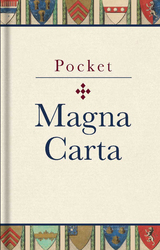
Pocket Magna Carta
1217 Text and Translation
Edited by the Bodleian Library
Bodleian Library Publishing, 2016
Magna Carta, or “Great Charter,” is one of the most important documents in legal history. Originating in 1215 as a peace treaty between King John and a group of rebellious barons at Runnymede, it put into law the concept of individual liberty and transformed the role of the monarch toward the people. Magna Carta was subsequently revised and reissued throughout the thirteenth century, and the ideas it expressed have had a profound influence, including on the US Constitution and Bill of Rights.
Pocket Magna Carta reproduces the 1217 reissue of this landmark document, including both the original Latin text and a modern translation, as well as an accessible introduction that traces the background of Magna Carta’s signing and subsequent revisions throughout the centuries. It also explains how the text has become an enduring symbol of freedom in Britain and the wider world. A clear and concise introduction to one of the most important documents in legal history, Pocket Magna Carta will be welcomed by those with an interest in British history or the wider history of Britain in the world.
Pocket Magna Carta reproduces the 1217 reissue of this landmark document, including both the original Latin text and a modern translation, as well as an accessible introduction that traces the background of Magna Carta’s signing and subsequent revisions throughout the centuries. It also explains how the text has become an enduring symbol of freedom in Britain and the wider world. A clear and concise introduction to one of the most important documents in legal history, Pocket Magna Carta will be welcomed by those with an interest in British history or the wider history of Britain in the world.
[more]
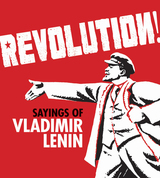
Revolution!
Sayings of Vladimir Lenin
Edited by the Bodleian Library
Bodleian Library Publishing, 2017
“Without a revolutionary theory there can be no revolutionary movement.” So wrote Vladimir Ilyich Lenin, leader of the Bolshevik Revolution and founder of the USSR. Lenin was profoundly aware of the power of words. As a prolific writer and orator, he used his words to launch a soaring critique of imperialist society and to theorize the development of the world’s first socialist state. Much of his writing was translated into English in order to further the socialist cause.
Revolution! Sayings of Vladimir Lenin is a compilation of Lenin’s most famous sayings, taken from speeches, lectures, letters, and recorded conversations. Together, they show his views on topics ranging from democracy to terrorism, from religion to Stalin’s untrustworthiness, and from education to music. Accompanied by a range of striking images, including contemporary propaganda posters, photographs, portraits, illustrations, and Soviet art, these aphoristic proclamations offer an insight into the atmosphere of pre- and post-revolutionary Russia and the mind of one of the twentieth century’s most defining political figures.
Revolution! Sayings of Vladimir Lenin is a compilation of Lenin’s most famous sayings, taken from speeches, lectures, letters, and recorded conversations. Together, they show his views on topics ranging from democracy to terrorism, from religion to Stalin’s untrustworthiness, and from education to music. Accompanied by a range of striking images, including contemporary propaganda posters, photographs, portraits, illustrations, and Soviet art, these aphoristic proclamations offer an insight into the atmosphere of pre- and post-revolutionary Russia and the mind of one of the twentieth century’s most defining political figures.
[more]
READERS
Browse our collection.
PUBLISHERS
See BiblioVault's publisher services.
STUDENT SERVICES
Files for college accessibility offices.
UChicago Accessibility Resources
home | accessibility | search | about | contact us
BiblioVault ® 2001 - 2025
The University of Chicago Press




